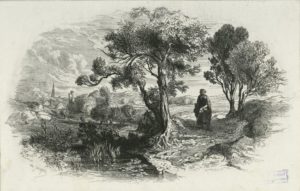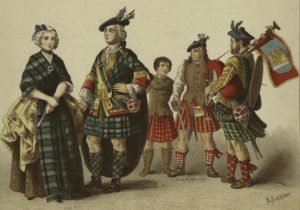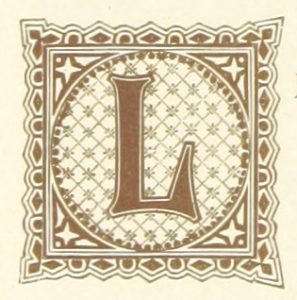nav
Reasons why Scots joined the Jacobite Army in 1745

The flag carried by the Jacobite Stewarts of Appin during the Battle of Culloden in 1745.*
Yesterday marked the 276th anniversary of the Battle of Culloden, where the Jacobite forces led by Prince Charles Edward Stuart were brutally annihilated by the the forces of Hanoverian king George II, under his younger son Prince William “The Butcher” Duke of Cumberland.
Many people wonder why their Jacobite ancestors pledged their loyalty the Jacobite cause in 1745, so in this blog post I will explain 3 of the key reasons.

Ancestral and Clan loyalty: Many members of the Jacobite army came from clans who traditionally supported the House of Stuart, such as Clan Cameron, McClean, MacDonald, Mackintosh/Chattan Confederation and Stewarts of Appin.
Being part of a clan was a way of life for so many, and the love and loyalty to their clan and its traditions was strong. Also, some clansmen were bound not just by loyalty, but by law to the demands of their chief – this is best shown in the centuries old practice of feudalism, where a fief (parcel of land) was owned by a chief/nobleman/laird and given to people in exchange for fighting for them in times of battle or war. Feudalism in Scotland was only made illegal in the year 2000!
An important thing to remember though is that while some sects (branches) of a clan supported the Jacobites/House of Stuart, often a larger branch or chief didn’t, such as Clan Campbell for instance – while the Campbells of Glenlyon supported the Jacobites in the 1745 (as did many individual Campbells) the chief of Clan Campbell, the Duke of Argyll heavily supported the Hanoverian side.

Personal Gain: For a while, it looked like the Jacobite side would win in 1745 – they won a number of impressive battles (most notably Prestonpans) and usually had effective strategies, providing Prince Charles actually listened to his army commanders. This led some lairds, chiefs and clansmen to join the Jacobites in hope of reward, e.g land, money, titles, political clout or to restore their ancestral lands that had been removed from them due to their participation in earlier rebellions. If your ancestor joined the Jacobite army later in the rising, this could be the reason, or they may have waited a few months to see how the rebellion played out before pledging their loyalty.

Dissolving the 1707 Act of Union: The 1707 Act of Union joined the kingdoms of Scotland and England together, making Scotland a province of England under the “United Kingdom of Britain”.
If you wish to learn more about the Act of Union, I suggest you read this great article by Historic UK – https://www.historic-uk.com/HistoryUK/HistoryofBritain/The-Act-of-Union/
As you can see, the Act of Union was done without the consent or acknowledgement of the Scottish people, and many were (understandably) angry at the decision that placed their taxes, coinage, parliament and sovereignty under English control. Many Scots joined the Jacobite rising in 1745 in the hopes that if Prince Charles’s father James (and later Charles himself) became king, they would dissolve the Act of Union and grant Scotland absolute sovereignty over their own affairs with the Stuarts in dual kingship of Scotland and England, as James had promised some years earlier.
The further oppression of the Highlands by the Hanoverians after the 1715 and 1719 Jacobite risings further fuelled the Scots to dissolve the Act of Union.

While the 1745 Jacobite rising was ultimately crushed in the slaughter at Culloden and the dissembling of the Gaelic culture in the years that followed, by remembering and researching our Jacobite ancestors we can ensure that these brave men and women can rest in peace, their stories told at last.

*Source: National Museums Scotland, ‘Culloden, Regimental Colours’, https://www.nms.ac.uk/explore-our-collections/stories/scottish-history-and-archaeology/the-jacobite-challenge/the-jacobite-challenge/regimental-colours/#:~:text=This%20rare%20Jacobite%20colour%2C%20or,support%20of%20Prince%20Charles%20Edward., accessed 16 April 2021.